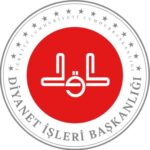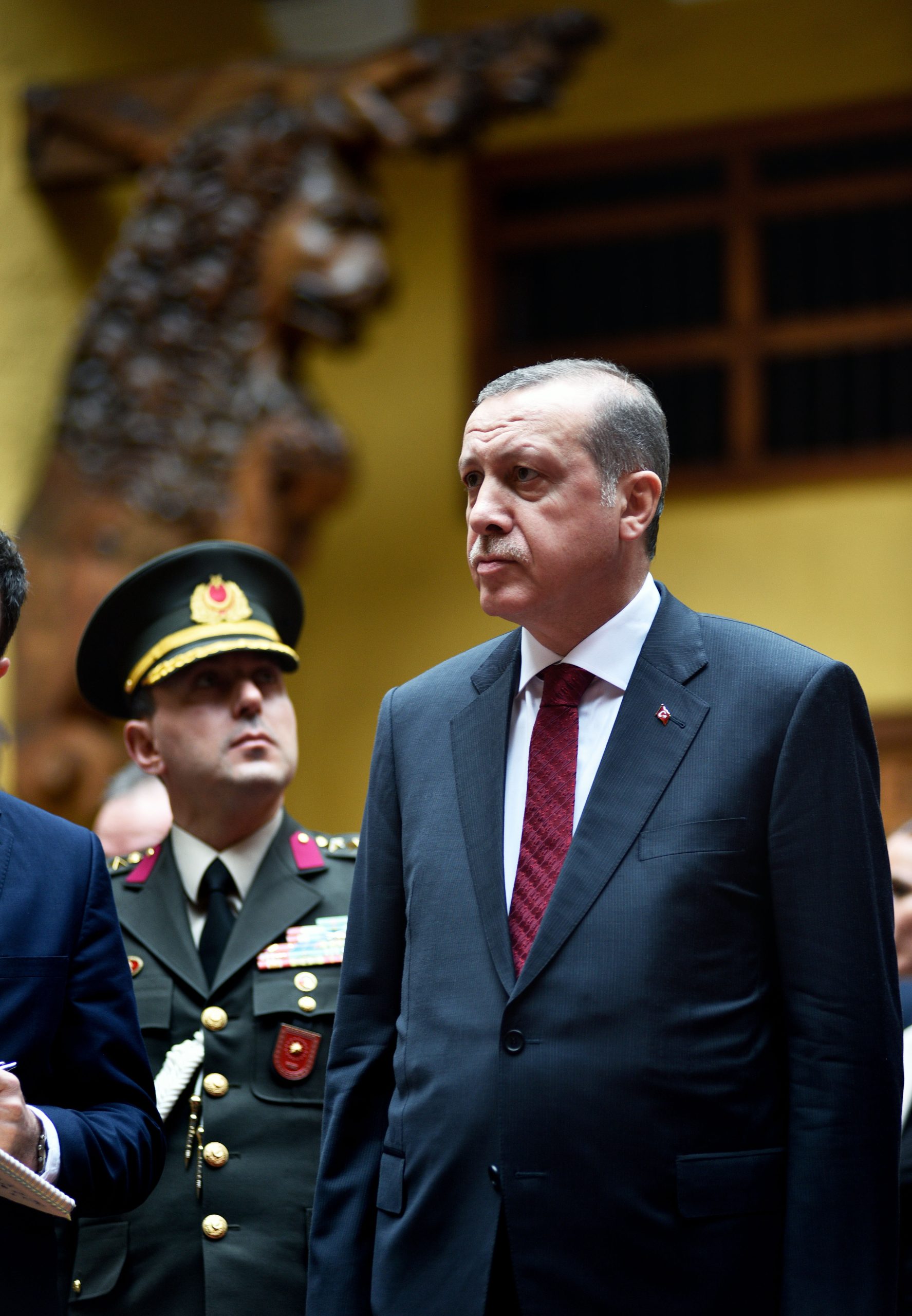In one of the greatest ironies of modern Turkish politics, a religious office established by Mustafa Kemal Atatürk nearly a century ago has become a powerful torch-bearer of what the secular founder of modern Turkey viewed as the greatest political threat to the young republic: Islamism.
For eight decades, the Directorate of Religious Affairs in Turkey (Diyanet İşleri Başkanlığı in Turkish, or simply Diyanet) functioned as a secular state institution that, as ordered by law, administrated the affairs of faith and the worship of Islam. It separated the orthodox religious establishment from state and political institutions. It worked to ensure that the practice of Islam did not interfere with the authority of the secular state.

Ideologically, the Diyanet once considered all Islamic practices outside of the secular state’s purview as “radical, heretic and perilous to the nation.” That is until the parallel rise of Turkish President Recep Tayyip Erdoğan and political Islam in the early 2000s.
In 2006, the office was fortified and deeply politicized in line with the consolidation of Erdoğan’s power. With sharp annual rises in its budget, the Diyanet now operates over 1,000 branches across Turkey employing 150,000 staff members.
Erdoğan’s use of the Diyanet to promote political Islam is of great consequence. It controls educational, cultural, and charitable activities in 145 countries, broadcasts 24 hours a day from its media channel and expands Quranic education to early ages and boarding schools – “enabling the full immersion of young children in a religious lifestyle.” It issues fatwas, or religious edicts, on demand.
The Diyanet’s 2022 budget is 16.1 billion Turkish liras (approximately $1.2 billion), larger than the annual budget for seven of Turkey’s 17 ministries, including the Interior, Foreign, and Energy Ministries.
One of the institution’s most urgent strategic goals under the Erdoğan regime is to increase its visibility and influence on the international stage. The number of Diyanet’s religious education programs abroad is expected to rise from 160 in 2019 to 1,778 in 2023.
The Dyanet not only dominates religious life in Turkey, but it influences the religious and political life outside the country through the messaging it broadcasts to Turkish-funded mosques in the rest of the world.
Since 2002, the Erdoğan government has spent more than $500 million to build mosques in Djibouti, Kyrgyzstan, the U.S. and U.K., Russia, Haiti, the Philippines, Somalia, and Mali, and it plans to restore mosques in Colombia and Thailand. In Syria, Turkey is sponsoring repairs, maintenance, and restoration work for 161 mosques. Most recently, in February, the Diyanet distributed 30,000 free copies of the Quran in the West Bank.
The Diyanet’s expansionist activities in Europe in recent years has relied extensively on two related institutions, both of which target Turkey’s expatriate communities in Western democracies with Islamist propaganda.
The first of these institutions is the UID or the Union of International Democrats (Union Internationaler Demokraten in German).
The UID is headquartered in Cologne, Germany, and operates 253 offices in 17 countries. Its mission is “to function as a bridge between Turkey and the countries in which it is active.” It is not a religious institution but a political lobbying and propaganda institution for Turks living abroad. UID is based in Germany but operates around the world as sort of a European base for the AKP’s worldwide interests.
The second institution deployed to promote Turkish influence is the DITIB or the Turkish-Islamic Union for Religious Affairs, (Türkisch-Islamische Union der Anstalt für Religion in German).
The DITIB, which like the UID, is also headquartered in Cologne-Ehrenfeld, is the sponsor of nearly 1,000 mosques in the country. It is an official branch of Diyanet.
Both organizations have attracted the attention of German security officials.
Since 2017, UID has been mentioned in annual reports of the BfV, the German Federal Office for the Protection of the Constitution, which is part of the Ministry of the Interior and is charged with protecting the country from antidemocratic forces, particularly neo-Nazism. “UID was founded on orders from Erdoğan and is committed to protect in Germany and Europe the interests of the Justice and Development Party [AKP],” according to the BfV. “It is an unofficial organization of the AKP.”
The BfV detected connections between UID and Osmanen (Ottomans in German), a criminal network accused of extortion, drug dealing and prostitution, also known as “Erdoğan’s batterers in Germany.”
In 2021, Erdoğan met with UID’s chairman, Köksal Kuş, a former militant ultranationalist. He asked UID to more actively engage in efforts to counter anti-Turkish racism, discrimination, and anti-Islamic activities in Germany.
In one report, the BfV warned that UID may be seeking to influence German politics. In fact, UID and DITIB have demonstrated similar political strategies towards German politics.
In a statement shortly before Germany’s federal elections on September 26, UID’s chairman, Kuş, urged maximum participation of the Turkish community in the German electoral process and called them to counter “increasingly reinforced anti-migrant and racist political rhetoric in Europe in the past few years.”
Using similar rhetoric, Kazım Türkmen, DITIB’s chairman, urged Turks to go to the ballot box to balance voting for extremist parties and to defend the rights of Muslim women in headscarves. These may seem like a relatively harmless pursuits, but DITIB is known as a polarizing and divisive force within Germany’s Turkish expatriate community.
A September 2016 order from the Diyanet asked Turkish imams in Germany to pass information to diplomatic missions on dissidents and opponents of the Turkish government, in particular the supporters of Fethullah Gülen, a self-exiled Turkish cleric accused by Ankara of being the mastermind behind the July 15, 2016 putsch attempt against Erdoğan.
The Gülen movement, or Hizmet (service), is an transnational Sufi Islamist network generally known for its moderate views and integration with secular democracies. In Turkey, Gülenists were deeply embedded in state institutions such as law enforcement and the judiciary, until a falling out with Erdoğan over corruption investigations targeting the AKP.
In the “spy-imam” case, 19 Turkish clerics were investigated for allegedly handing over information on suspected Gülenists to the Turkish consulate in Cologne.
Prosecutors in Karlsruhe, Germany, dropped the charges after seven suspects fled Germany and therefore could not be indicted. There was insufficient evidence to proceed in another seven cases, and additional cases were dropped, deemed minor infractions not worth prosecuting.
“In addition, those defendants believed that they had to fear significant repression by government agencies in Turkey if they had refused to implement the mission of Diyanet,” prosecutors said. DITIB admitted “a few” of its preachers “wrongly” acted as informants for the Turkish government.
In 2021, the German government started to take steps to counter what it viewed as “dubious religious education” provided by “a thousand Turkish imams sponsored by the Ankara government.” The first step was to launch the federally-sponsored Islamic College (Islamkolleg in German), headed by a Turkish theologian, Professor Merdan Güneş.
An initial group of 20 to 40 imams, including women, joined the two-year curriculum, but there are indications that Muslim communities will not embrace locally educated clerics.
Both DITIB and Milli Görüş (National View in Turkish), Germany’s second-biggest Islamic organisation, chose not to participate in the creation of the Islamic College. A year earlier, DITIB launched its own training program in Germany. Bekir Altaş General Secretary of Milli Görüş declared the training of imams should be “free from external influences, especially political ones.”
German officials have been debating whether to ban political activity in mosques, but this will not be easy to do. “It will be ambiguous to say which activity is political and which is not,” said Benjamin Strasser of Germany’s Free Democratic Party.“ And besides, who and how will [German authorities] check if the ban is being fairly implemented?”
Erdoğan’s use of the Diyanet to promote Islamism through Turkish-funded mosques in Germany and other European countries hosting large Turkish communities presents a challenge to Western leaders who will have to contend with of the spread of Turkey’s ruling ideology into their societies: a blend of neo-Ottoman Turkish nationalism and Islamism.
It’s not a problem they can ignore.
Erdoğan and his ultranationalist coalition partner, Devlet Bahçeli, political foes until 2017, have been recklessly pushing Turkey further into an anti-Western orbit. And this has had an impact on public life outside the country. Groups of thugs like Osmanen in Germany show the dangers of blending pan-Turkism with Islamism and piping it into Europe
“The formation of the new federal government … offers the opportunity to turn the page and act decisively against Turkish ultranationalists in Germany, by cutting off old networks, expanding educational programmes and seriously considering banning these dangerous organizations,” Gionathan Lo Moscolo wrote in Open Democracy.
Lo Moscolo may be too optimistic. Foreign policy deliberations in Berlin and Brussels could spoil any serious German attempt to keep Turkish Islamist organizations in check.
Home to 4 million Syrians and 1.3 million other (unregistered) migrants, Turkey is a difficult neighbor for countries in the European Union. German politicians have traditionally appeased Erdoğan because of Turkey’s ability to disrupt life in their country.”
The problem will only get worse if the leaders of Western democracies allow Erdoğan to broadcast Islamism into their countries without challenge.
Burak Bekdil is an Ankara-based political analyst and a fellow at the Middle East Forum.
